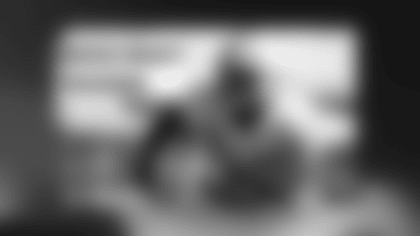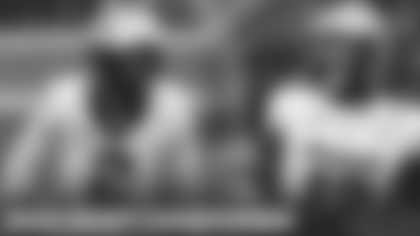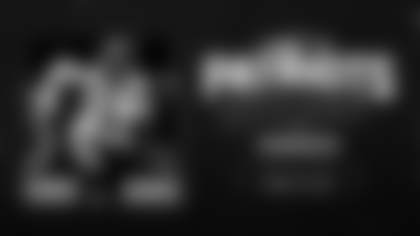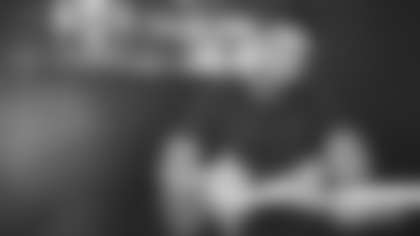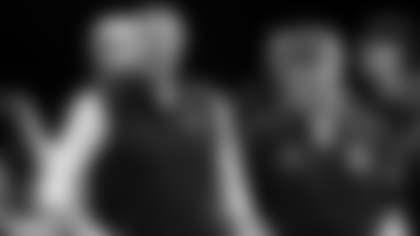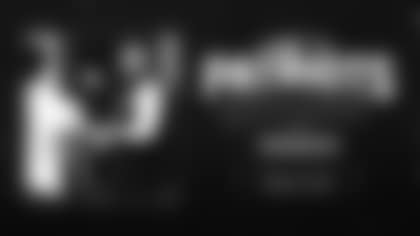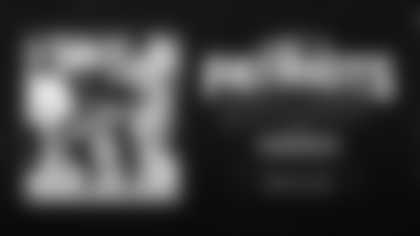*[

]()(First of two-part series) *
While present day fans of the New England Patriots may be conditioned to believe a trip to the Super Bowl is an annual rite for their beloved gridiron heroes, longtime Pats fans can attest to the fact that Super Bowls used to be an extremely rare commodity for their team.
In fact, it took 25 years worth of agonizing losses before the Patriots finally found their way to Super Sunday. Two decades ago, the 1985 edition became the first club in franchise history to reach professional football's ultimate game, and they did it the hard way by becoming the first and only team in NFL history to advance to the big game with three consecutive playoff victories on the road.
The story of the 1985 New England Patriots actually began Oct. 25, 1984, the day Raymond Berry was named the ninth head coach in team history. As a former Hall of Fame wide receiver for the Baltimore Colts, Berry was known for his meticulous approach to the game. Every one of his pass patterns had to be precisely run and timed to perfection. Even the items in his locker were carefully arranged, and woe to the teammate who borrowed something and failed to return it to its proper spot. When Berry first took control he essentially let his assistants coach the game as he observed from the sidelines and took notes. While his methods may have seemed curious, the native of Corpus Christi, Texas, knew exactly what he was doing.
[

]()"I had been out of the game for three years and I remember how easy a transition it was going back into coaching," said Berry. "Probably the most important thing that happened over that last half of the season was my getting to know the players and their capabilities and realizing what a talented team I had inherited. I began to realize we had the talent to compete with anybody, and that this team should be able to go out and make a run for a world championship."
Berry had his players' attention from Day 1, and although the team finished 9-7 and missed out on the playoffs in 1984 there was great optimism for the following season. "In 1984 he spent that entire half season figuring out who we were as individuals," said center Pete Brock. "He really made us feel like he cared and it made us want to play hard for him."
When the team reported to training camp in the summer of 1985, Berry began to institute his methods to mold a mass of impressive physical talent into a cohesive unit that would not wilt under pressure. Unlike Bill Parcells' method of using fear to motivate players, Berry's positive-attitude approach made a connection with his players. His low-key style seemed the perfect fit for the team, and he succeeded in getting his players to believe in themselves and motivated them to achieve what many thought to be unreachable goals.
"Raymond had instant credibility coming in as a former player and a Hall of Famer," said linebacker Andre Tippett, who would lead the AFC with 16.5 sacks and be named the NFL's Defensive Player of the Year in 1985.
"He had a strong work ethic and high expectations for every player on the squad. He had this uncanny understanding of knowing what was going to happen in a game and to have us prepared for it. He always had an answer for any situation."
[

]()The one aspect of Berry's coaching philosophy that did leave the players scratching their heads was his emphasis on stripping the football and recovering fumbles. "When we started doing those drills I kept wondering what in the world we were doing out there," said Tippett. "He had all of us trying to block punts and doing fumble recovery drills in full pads. But after a few days of it we got used to it being a part of our regular routine and it ended up coming up big for us for that 1985 season."
Tip's tirade turns tide
The Patriots began the 1985 season with an impressive 26-20 win over Green Bay in Foxborough. The Patriots normally conservative 3-4 defense took on a new aggressive look, with outside linebackers Don Blackmon and Tippett each recording three sacks. Along with Larry McGrew and the veteran Steve Nelson on the inside, the Patriots linebackers formed the backbone of one of the best New England defenses in many years. Bill Belichick would have been envious of the stellar Patriots secondary consisting of corners Raymond Clayborn and Ronnie Lippett and safeties Fred Marion and Roland James, as the quartet started all 16 regular season games in 1985. Rookie defensive end Garin Veris joined veterans Julius Adams, Kenneth Sims and Dennis Owens to give the Pats depth across their defensive front.
The euphoria over the opening day win was short-lived, as the club dropped three of its next four games to bring many to the conclusion that this team was no different from so many other underachieving clubs of recent years. The main culprit in the Patriots rough start was a sluggish offense that managed only one touchdown per game through five weeks. Third-year quarterback Tony Eason showed little resemblance to the promising youngster who lit up the scoreboard after taking the starter's job from Steve Grogan the previous year. After throwing only eight interceptions the entire 1984 season, Eason served up a whopping total of 11 picks in his first six games of 1985.
While there were several watershed moments for the 1985 Patriots, many point to the 24-20 loss to the Browns in Cleveland in Week 5 as the biggest. While Browns rookie quarterback Bernie Kosar scorched the New England secondary in his NFL debut, it was the failure of Eason and the offense to convert a first-and-goal from the Browns 4-yard line that proved fatal. After the game the normally reserved Tippett broke loose with a display of anger and an impromptu diatribe that shocked his teammates.
"There was definitely some action of a physical nature going on, not with my teammates but with some chairs being thrown around the room," laughed Tippett. "I thought the Browns had tried to embarrass us, and I wanted everyone to know it was time for us to stand up and let our opponents know that they weren't going to physically abuse us. We were a good team, and it was time for us to start playing like one."
[

]()Tippett's tirade had a galvanizing effect on his defensive mates. Over the next seven games they would play some of their best football of the season, limiting the opposition to just under an average of 13 points a game during that stretch.
The onus now fell on the offense to regain its scoring touch to make the team complete. There certainly was no shortage of offensive talent available. The offensive line, consisting of center Pete Brock, guards John Hannah and Ron Wooten and tackles Brian Holloway and Steve Moore was formidable. The stable of running backs, including Craig James, Tony Collins, Robert Weathers and Mosi Tatupu, was among the deepest in the league. Wide receivers Stanley Morgan and Irving Fryar, along with tight ends Lin Dawson and Derrick Ramsey, provided inviting targets yet a spark was needed to ignite the slumbering group.
Grogan and the streak
The winning streak that catapulted the Patriots into the thick of the race for the AFC East crown hardly had an auspicious beginning. On a cold, rainy afternoon in Foxborough, the Patriots were sleep walking through their game against the lowly Buffalo Bills when fate dealt them a curious blow that would ultimately turn out to be a stroke of good fortune.
Eason's afternoon was abruptly cut short in the second quarter when he was driven from the game with a shoulder separation. As the ineffective Eason left the field to a raucous chorus of boos, the offense was turned over to the veteran Grogan, whom many had written off as being over the hill.
"I hadn't played in a game in more than a year, and I started to wonder if my career was over," said Grogan. "I knew I could still get it done, but I was a little nervous because I hadn't done it in awhile. Raymond knew I had called my own plays in the past, so he told me to call what I was comfortable with. It worked out really well because that way I could get feedback from guys in the huddle on what might work and then I could call the play accordingly. I think that's the main reason we started to click on offense."
Although he displayed some rust after a year of riding the bench, the veteran signal-caller turned in a solid performance on a dreary afternoon, completing 15-of-19 passes, including a 16-yard scoring toss to Fryar that put the Pats ahead in the third quarter. A fourth quarter interception return for a touchdown by Clayborn cemented a 14-3 win over the Bills and served to set the stage for a dramatic series of games over the next several weeks.
The following week the first-place New York Jets came to town to set up a must-win game for the Patriots. Already trailing their archrivals by two games in the division, a loss would have seriously crippled the Pats chances for the postseason. With the game tied at 13 in the fourth quarter, Grogan called two of his trademark plays. First he hit Morgan on a 47-yard bomb, then the crafty old pro pulled out the game by calling his own number. Grogan faked out the Jets, the crowd and his own teammates when he ran a naked bootleg to the left side to account for the game-winning touchdown.
"I really thought that win over the Jets was the one that got us over the hump," said Grogan. "After the game we were all talking about how we had a chance to do something special with this team."
Two weeks later the Patriots found themselves in a showdown with Don Shula's defending AFC Champion Miami Dolphins. Despite limiting Dan Marino and the high-powered Miami attack to a single touchdown, the Patriots found themselves trailing 13-3 entering the final quarter. Grogan marched the team to the Miami 28 where the Patriots called timeout to discuss a crucial fourth-and-inches situation.
"It was actually reserve tackle Art Plunkett who came up with the idea for the flea flicker," said Grogan. "We were all talking over what we should run and he suggested it. We all looked at each other and said, 'That's a great call. Let's go with that.'"
[

]()The Patriots lined up 6-4, 290-pound tackle Steve "Big House" Moore in the backfield with Mosi Tatupu. Grogan handed off to Tatupu, who ran toward the center of the line, then turned and pitched the ball back to Grogan. Grogan then lofted a perfect pass to reserve tight end Greg Hawthorne for the touchdown that whipped the rain-soaked, capacity crowd in Foxborough into a frenzy.
Moments later the Patriots regained possession on their own 20 trailing 13-10. James recalled what happened next: "Steve came into the huddle and said, 'Hey guys, this is where championship teams are made. If you want to win a championship we have to take it down the field.'"
In one of his finest moments, Grogan methodically marched the Patriots 80 yards in 10 plays, covering the final yard himself to account for the winning score to cap a pulsating 17-13, come-from-behind victory. The win gave New England sole possession of first place in the division, and for the first time in almost a decade thoughts of a Super Bowl began to creep into the collective consciousness of Patriots Nation.
Berry's Pats found themselves in another white-knuckler two weeks later in Week 11 in the Seattle Kingdome, a place where visiting teams seldom ever won. Seahawks quarterback Dave Krieg took a streak of 19 straight games with at least one touchdown pass into the contest, and late in the fourth quarter he seemed on the verge of continuing that streak against the Patriots. With the score tied at 13 the Seahawks put together a long, time-consuming drive that brought them to the New England 7. With their backs to the proverbial wall the Patriots came up with what many believe may have been the key play of the season.
"They were about to put us away in that game," recalled free safety Fred Marion, who in his first season as a starter would be one of eight Patriots named to the Pro Bowl. "They had us out on the field for some 15 plays on that drive and it was getting hard for us to breathe inside the Kingdome. [Krieg] tried to throw a slant and [Johnny] Rembert tipped the ball and I caught it right on the goal line. Being so tired I didn't have the energy to take it all the way, but I knew Grogan would come in and take us in anyway."
Marion's 83-yard interception return was the longest in the AFC that season. Two plays later, Marion's faith was rewarded when Grogan found Fryar in the end zone for perhaps the club's most improbable win of the season. It was the Patriots sixth straight victory since Grogan had taken over at quarterback, but just when it appeared the Patriots might never lose again they dropped a 16-13 overtime decision to the Jets in Week 12 to fall into a first-place tie with New York. Adding insult to injury, or in this case, injury to insult, New England lost Grogan to a broken leg. With their winning streak snapped and their leader on offense now gone things couldn't have looked worse for the Patriots. There were four games remaining on the schedule, including a rematch with the Dolphins in Miami, and the question became whether the Patriots could avoid folding down the stretch as they had the previous few years.
The playoff drive
[

]()The injury to Grogan necessitated the return of a now-healthy Eason for the final four games. But instead of the shaky, interception-prone quarterback that began the year, Eason somehow regained his 1984 form. He completed 20-of-28 passes with three touchdowns to help defeat the Colts in Week 13, and followed that by scoring the only touchdown the Patriots would need on a 17-yard scamper in a 23-6 win over Detroit a week later.
"I think Tony benefited from the time he spent on the sidelines," said Grogan. "He got a chance to see how things were going and he came back a better player for it. He really played well that last month of the season."
The two straight victories forced a Monday night showdown against the Dolphins in Miami that would decide the AFC East title. Although the Patriots had not won in Miami since 1966, Berry's intrepid band was confident it could break the dreaded Orange Bowl jinx. It appeared things were going New England's way when they rallied to score 10 points in a 15-second span midway though the final period. Cedric Jones' return of a fumbled kickoff knotted the score at 27-27, and it seemed that destiny was still on the Pats side. But then the dreaded Orange Bowl jinx struck again.
Marino maneuvered the Dolphins into position for the go-ahead field goal, and after the Patriots moved the ball to the Miami 34 with only seconds remaining, Eason threw high and was intercepted for the third time in the game.
The crushing 30-27 defeat at the hands of the Dolphins forced New England into a must-win situation in the season finale at home against the explosive Cincinnati Bengals. A win would secure a wild card spot, while a loss would mean the Patriots would miss out on the postseason for the third consecutive year. The loss to Miami had soured many of the fans and the game failed to sell out in time to lift the local TV blackout, ensuring everyone in the Boston viewing area would miss seeing one of the most exciting games in franchise history.
A huge walk-up crowd nearly filled the stadium to capacity, and in an emotional pregame introduction, 15-year veteran defensive end Julius Adams was given a tremendous ovation by the hometown fans in his final regular-season game. His emotionally charged teammates responded with one of their best efforts, as New England rushed for a season-high 281 yards in a 34-23 win over the Bengals. James led the assault with 142 yards to finish the season with 1,227 yards rushing, the most in team history at the time.
The win hardly came easily. Holding a slim 27-23 lead, the Patriots found themselves a foot shy of a first down in a fourth-down situation on the Cincinnati 42 at the two-minute warning. Faced with the option of either punting the ball back to the Bengals and red-hot quarterback Boomer Esiason or going for the first down to clinch the game, Berry eschewed the conservative approach and opted to roll the dice. New England came out in a three-tight end formation with the bull elephant backfield of Weathers and Tatupu. What happened next has since gone down in the annals of Patriots lore.
Weathers avoided an ankle tackle deep in the backfield by a sprawling Bengal defender, looked inside, and then quickly cut upfield to his right. He popped through a crease off-tackle, slipped outside and then saw nothing but daylight. Forty-two yards later he wa[

]()s in the end zone with the game-clincher that set off a wild celebration in Foxborough.
"The play was for Weathers to run it inside, but he had the option to break it back out," said Grogan. "He got great blocks by Lin Dawson and Greg Hawthorne on that play and just slipped outside and he was gone. Then it got really crazy. The funny thing is after the game Weathers told us he had a dream the night before that he would score on that exact play."
The jubilant fans swarmed onto the field at the final gun and celebrated like their team had just won the Super Bowl. They succeeded in their quest to break the goalposts into pieces and proudly lugged their newfound trophies out of the stadium. Unfortunately a few of the Patriots faithful nearly electrocuted themselves when a piece of the dismantled goalpost came into contact with a power line overlooking Route 1. As it turned out, it wouldn't be the last shock delivered to Patriots fans that winter. PFW
Next: The wild ride to Super Bowl XX continues as the '85 Patriots tear up the postseason road.



